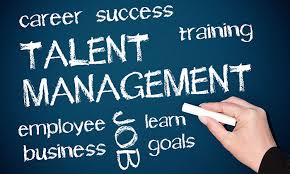PERFORMANCE MANAGEMENT LEADS TO EVOLVED TALENT MANAGEMENT PROCESS
Regardless of the size or industry every organization sets goals which enable managers and employees to look ahead and plan for the future actions for meeting those strategic visions. Most leaders understand the key to achieve sustainable success and remain profitable. It depends on a well-established and consistent Performance Management strategy and thereby considers it integral to the organizations’ success. A well-defined performance management strategy tied to the business needs assists in aligning the values and objectives of the organization and links it to the behaviour of the employees to maximize productivity. This also ensures employees remain engaged and focused towards achieving goals which in turn contributes to the overall organizational effectiveness in an efficient manner.
Before we delve into the topic, it is important to differentiate Performance Management, Performance Appraisals and Talent Management:
Talent Management – Encompasses all human-capital requirements of the organization like workforce planning, talent acquisition, performance management, succession planning and learning & development. Talent management is about ensuring people with the right skills are hired and deployed for the job.
Performance appraisals are atypical bureaucratic ceremonial meetings to make subjective judgments about past performance and behavior of the employee against predetermined goals. This more often prompts employees to place individual goals over team goals. These review meetings in most organizations are usually narrowly focused without bearing any linkage with the overall organizational vision or goals and hence have no strategic or operational outcomes. This resulted in evolution of Performance Management concept.
Performance Management is more than just filling up a review form and conducting review meeting once a year, it is a continuous process with frequent check-ins between managers and their reports which focuses on creating an environment for employees to focus on the right things and promotes team work. It involves more than just once a while tracking and monitoring of what is… this more often spills itself into everyday conversations for shared understanding of what can be achieved and for creating an approach or process to celebrate success every day. It is a process which nurtures emotions by coaching and significantly shapes individual behavior to channelize and direct actions to deliver more, make right decisions and safeguard organizations’ interest.
The process broadly includes examination of workforce capabilities; assessment of skill sets and identifies best job roles for individual employees as an ongoing process which in-turn contributes to a higher engagement levels and motivation.
The process works best when it is decentralized allowing the business units the empowerment and flexibility to customize the system and offer a sense of ownership as the process either has a direct influence or is impacted by:-
- The ability of the manager to articulate vision and improve participation
- Individual & Team development opportunities
- Clear understanding of group role and structure in fulfilling organizations purpose
- Managing conflicts & improving collaboration
- Recognition
Performance management is about ensuring employees know what they have to do and how they have to get there. The review/assessment also provides key insights in future hiring decision w.r.t skill sets and therefore requires hiring managers and recruiters to be in lock-step for on-boarding candidates with the right skill-sets and competencies to ensure workforce effectiveness. This approach makes the process objective in nature and therefore a primary business tool and a critical component to have an evolved Talent Management process.

